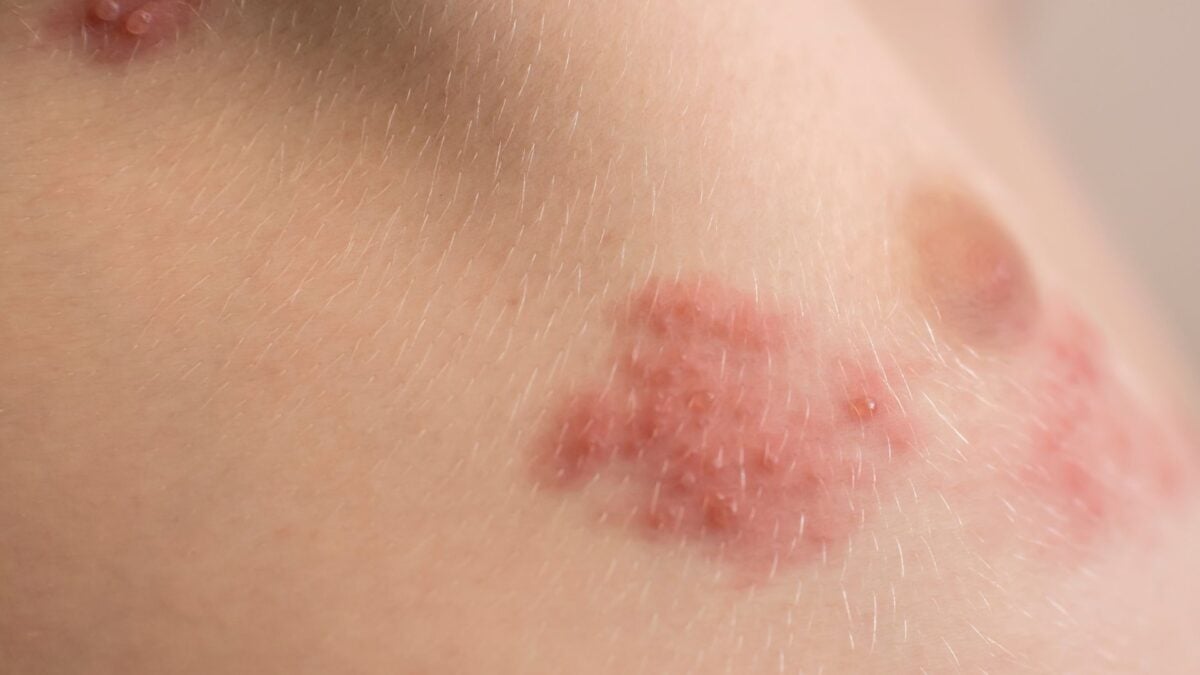
Shingles Shots Don’t Just Prevent Pain—They Might Save Your Life
A vaccine that prevents one of the most painful infections around could be good for your brain and heart, too. New research out this week shows the shingles vaccine is linked to a lower risk of several serious health conditions.
Scientists at Case Western Reserve University examined the health records of Americans over the age of 50. Those protected against the viral infection were less likely to develop heart disease, stroke, and a common form of dementia, they found. The findings are the latest to suggest that shingles can cause long-term consequences throughout the body.
The lingering threat
Shingles is caused by the varicella-zoster virus, the same germ responsible for chickenpox in children. Chickenpox typically causes a brief, if miserable, bout of illness. But afterward, the virus can survive and lie dormant in our bodies for decades. When our immune system weakens, either due to age or other factors, varicella-zoster can then reawaken and spark shingles.
Unfortunately, the second time with varicella-zoster is usually much worse. Shingles can cause excruciating pain and distinctive rashes that last for several weeks. Even after the infection is beaten back again, some people can be left with lingering, potentially lifelong nerve pain.
Thankfully, the shingles vaccine is highly effective at preventing its return and is widely recommended for adults over 50. In recent years, studies have also started to indicate that this protection extends beyond the infection itself.
Protection for the brain and heart
In this latest study, the researchers analyzed the medical records of more than 174,000 adults in the U.S. They tracked the health outcomes of people vaccinated for shingles for up to seven years and compared them to similar people who instead received the pneumococcal vaccine—another vaccine recommended for older people. This second group acted as a sort of control.
All in all, compared to controls, people vaccinated for shingles had a 27% lower risk of being diagnosed with blood clots and a 25% lower risk of heart attack or stroke. They also had a 50% lower risk of vascular dementia, a form of the condition caused by blood vessel damage in the brain, and a 21% lower overall risk of dying during the study period.
The team’s findings were recently presented at IDWeek 2025, the annual conference of the Infectious Diseases Society of America and other related organizations.
“Shingles is more than just a rash—it can raise the risk of serious problems for the heart and brain,” said study author Ali Dehghani, doctor of internal medicine at Case Western Reserve University’s School of Medicine, in a statement released by the IDSA. “Our study findings show that the shingles vaccine may help lower those risks, especially in people already at higher risk for heart attack or stroke.”
This type of research is observational, meaning it can’t directly prove a causative link between shingles vaccination and a reduced risk of these conditions. But other studies have also supported the idea that preventing shingles can prevent heart attacks and dementia. So given the already well-established benefits of the vaccine, these findings should just provide added motivation to get your shingles shots as soon as you’re eligible (the only currently approved vaccine is a two-dose series).
First Appeared on
Source link






